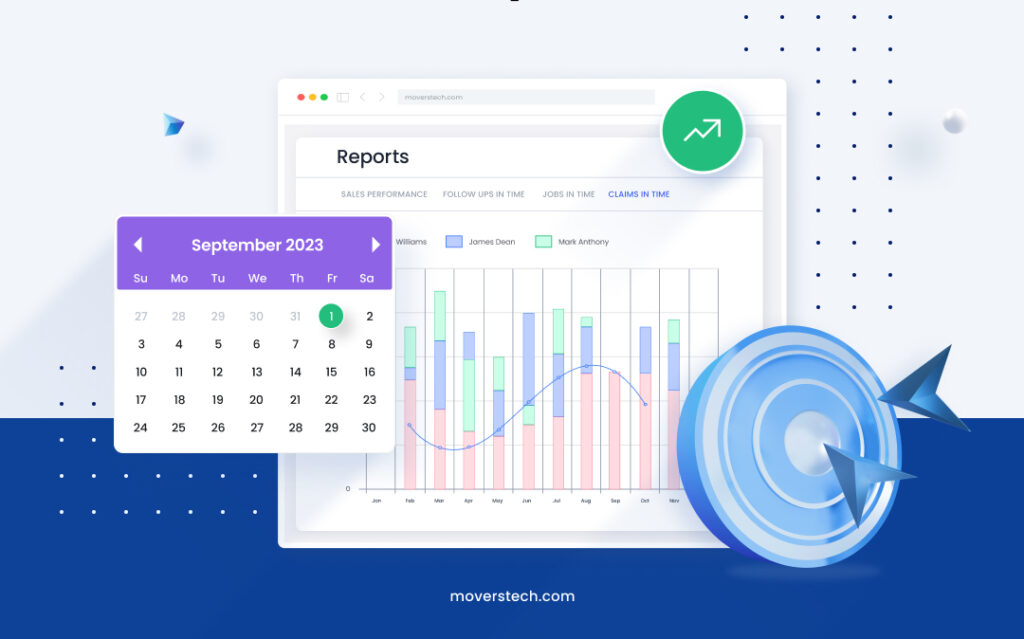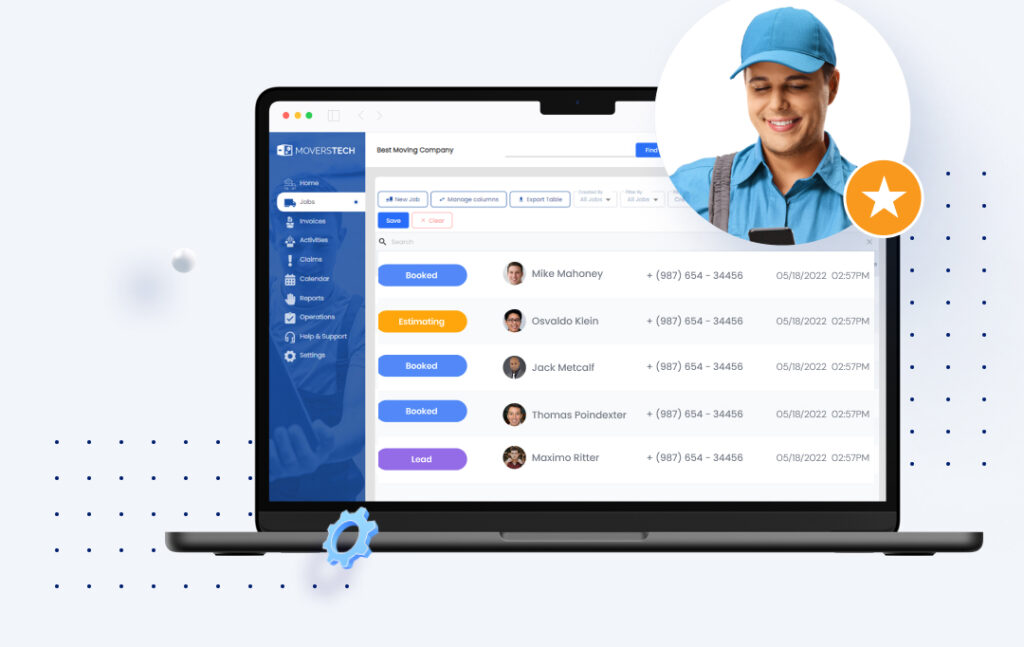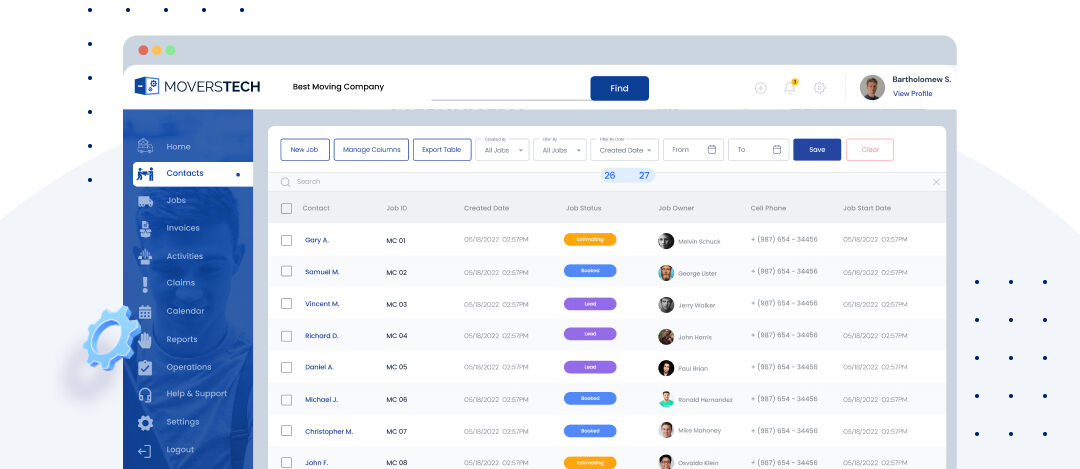The moving industry is facing some big challenges these days. With rising costs, changing demand, and a shortage of both trucks and skilled workers, it’s tough for companies to stay on top. But there’s a solution: Customer Relationship Management (CRM) systems. A moving CRM can help moving companies make the most of their resources, work more efficiently, and keep their customers happy.
Truck and workforce deficit
One of the biggest problems right now is the shortage of trucks and qualified workers. This leads to delays, higher costs, and unhappy customers. CRM helps overcome workforce and truck shortages by giving companies a central place to manage their resources.
For example, CRM systems can match available trucks and workers with customer needs, making scheduling easier. Route planning features can find the best paths, saving fuel and time. CRM also helps distribute the workload fairly, so no one is overwhelmed.
Imagine a moving company struggling to meet delivery deadlines because they don’t have enough trucks. With CRM, they can track each truck’s availability and maintenance schedule. This way, they can use their trucks where they are needed most, reducing downtime. For a deeper understanding of truck and workforce challenges, explore transportation insights.

Optimizing operations during economic changes
Economic ups and downs can really affect moving companies. When times are tough, demand for moving services might drop. When things are booming, demand can outstrip resources. CRM helps overcome workforce and truck shortages by keeping operations running smoothly, no matter the economic situation.
CRM systems automate tasks like booking appointments, sending reminders, and creating invoices. This reduces the administrative burden, letting employees focus on more important tasks. Better internal communication is another benefit, as CRM provides a platform for sharing information, leading to better teamwork.
CRM also improves customer service by offering a complete view of customer interactions. When customers reach out, employees can access their history and preferences. This allows for personalized service, leading to happier customers and more repeat business. With CRM, companies can get real time reports, allowing them to make quick, effective choices to keep operations on track.

Strategic planning with CRM
For strategic planning, integrating economic indicators into CRM analysis is essential. Considering factors like inflation, fuel prices, and labor market trends helps companies make smart decisions that fit the current economic climate.
CRM systems produce detailed reports on key performance metrics. These reports can be combined with economic data to spot patterns and trends. For example, if a CRM report shows fewer customer inquiries during a time of rising fuel prices, the company can investigate and adjust its strategy.
CRM helps overcome workforce and truck shortages by enabling proactive planning. Predicting demand based on past data and current economic conditions allows companies to plan for resource needs and tackle potential shortages before they become problems.

Enhancing employee training and retention
A well-trained workforce is key to any moving company’s success. CRM systems support employee training and retention by tracking performance and highlighting areas for improvement. Regular feedback and targeted training programs help employees build the skills they need.
CRM also helps retain employees by creating a more organized and less stressful work environment. When tasks are managed efficiently, employees are less likely to burn out. CRM can also recognize and reward top performers, fostering a positive workplace culture. In addition, CRM systems can streamline dispatch, which ensures that tasks are assigned and completed efficiently, further reducing stress and increasing job satisfaction.
The essential role of CRM in overcoming workforce and truck shortages
CRM helps overcome workforce and truck shortages by optimizing resources, improving operations, and enhancing strategic planning. With CRM, moving companies can work more efficiently, provide better customer service, and make smart decisions based on economic trends. They can also reduce expenses with CRM software, making it a cost-effective solution.
CRM is more than just a tool for managing customer relationships; it’s a comprehensive solution for many business operations. For moving companies dealing with economic challenges, investing in a good CRM system can make a huge difference. Embracing CRM technology is essential for staying competitive and succeeding in today’s changing economy.

